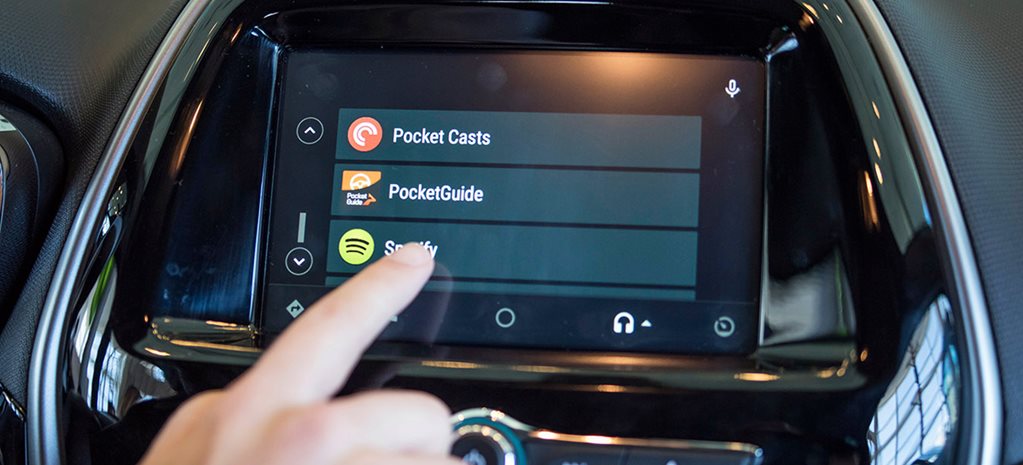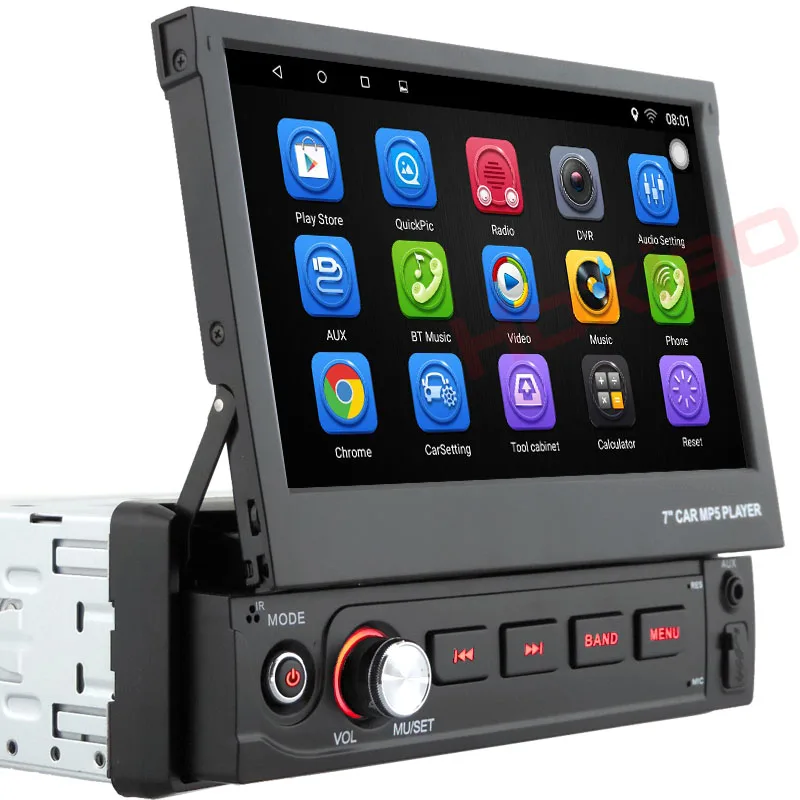► Old car? It can still have an Android Auto
► This article originally appeared on Whichcar.com.au
► A range of options analysed
If you’ve got a smartphone and you drive a car, what’s better than combining the two into a force for good? You’ll want Android Auto.
As Android-powered smartphones gain more market share, Google is attempting to match the runaway success of the Apple CarPlay format with some strong plays of its own.
The upgrade brought new app connectivity, greater integration with Google Maps and the related Waze map app, as well as Google’s own music app Play, plus Spotify, Messenger, podcast apps and many more.

This is great if your car can connected to Android Auto. But if your ride is a few years old, it’s likely your multimedia system may not be ready for smartphone mirroring. Sure, you might have Bluetooth, but unless you can see a screen pop up you don’t have it out of the box.
If you’re about to update your car, then odds are that it’ll offer smartphone mirroring – it’s available on cars as cheap as the entry level Kia Picanto. If, however, you’re keeping your car for another couple of years yet, there are a couple of sneaky ways to get Android Auto on board your rig.
Replacing the head unit
Back in the day, the savvy automotive audiophile would swap the standard AM/FM radio in their car for one with a cassette deck, or even a CD player. And if you were really cashed up, a ten-disc CD changer in the boot was the duck’s guts.
The job of swapping head units, though, has become much more difficult over the years, as car makers redesigned centre consoles and dashboards to better integrate newer screen-based multimedia systems.
However, there are still a lot of cars out there that still use the simpler DIN style of installation, which allows a new head unit to simply slot into a pre-existing hole.

DIN is named after the German standards body that defined a DIN slot as being two inches by eight inches, or 5cm by 20cm. This meant that all cars would be equipped with a universally standard-sized radio unit.
However, if your car has a more integrated system, modern installers have worked out ways to retrofit a system that can run Android Auto and make it look factory.
‘It’s the most common job we do these days,’ said Clinton Venaglia, who owns InCar Installations in the southern NSW city of Wollongong. ‘Some brands like Ford and Holden really headed down the integrated path a few years ago, but even so we can still install a system in most modern cars.’
Toyota, for example, makes things relatively simple by using double-DIN (think two DINs stacked on top of each other), while Mazda is a little more difficult.
Integrating systems like reversing cameras into the new units isn’t a problem either, according to Vengalia, who estimates the average cost of adding an Android Auto system to a car is around £400.
A new Android Auto head unit is generally based around a colour touch screen that’s built into the unit. It either remains in place permanently, or folds away and retracts into the dash for greater security and a cleaner look.
You then simply plug your phone in via an USB cable, and you’re set to go.
Prices for head units vary wildly, from around £250 at the entry level to more than £1000 at the top rung.
While home installation of an Android Auto system isn’t especially difficult for technically savvy types, we would highly recommend that a professional installer does the work. It’s all too easy, for example, to leave off a crucial earthing strap or not have the correct wiring module to make your new head unit work properly with your car.
As well, not all head units are compatible with all cars. You might lose the ability to control your stereo from your steering wheel controls, for example. It will cost a bit more, but a reputable installer will more likely help you if something goes wrong down in the future.
OEM retrofits
Some car makers that have lagged behind Android Auto integration are attacking the issue head on by offering a retrofit kit to give owners the full Android Auto experience.
The most recent update to the CX-9 was the first mainstream Mazda to get Android Auto as standard; the BT-50 ute scored it first because of its connection with the Ford Ranger.

‘It will be available for all customers with an MZD Connect system that first went on sale with Mazda 3 in early 2014,’ said a Mazda spokesperson last year.
Hyundai, too, has offered software upgrades for owners of their cars in order for them to access Android Auto. However, it hasn’t been the smoothest of rollouts.
Hyundai i30s from 2015 were largely able to accept the upgrade, but conversely, owners of top spec SUVs like the Santa Fe and Tucson Highlander have been told that the in-built GPS system aboard their cars prevent the installation of the Android Auto system.
Bluetooth
Is your car too old to be retrofitted Android Auto? Then Bluetooth connectivity will still allow you to stream music and podcasts through the car speakers. As well, map apps like Google Maps will send audible instructions over the sound system if you’re listening to streaming music.
And if that fails, consider a good old cable connection! A simple 3.5mm cable connection between your phone’s headphone jack and your head unit will give you sound.

However, more and more phones are being produced without the 3.5mm headphone jack, which means it’s Bluetooth, Android Auto or the good old FM airwaves.
This article originally appeared on Whichcar.com.au